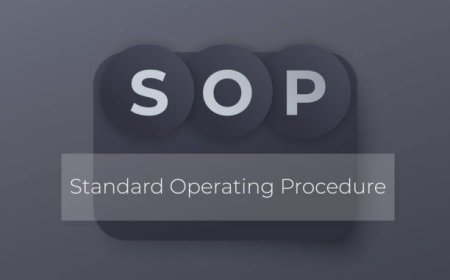Why Partnering with the Right Sports Betting API Provider Is Just as Crucial as Your App Developer
In the sports betting industry, technology and data walk hand in hand. You need both the brain (the app’s functionality) and the heartbeat (the data feeds) to make it work.

So, you’ve got a great idea for a sports betting app. You’re already looking for a development team to bring it to life—smart move. A sleek interface, smooth functionality, live odds, quick payouts—it’s all exciting stuff. But there’s one piece of the puzzle that many entrepreneurs and startups often overlook until it’s too late: the API provider.
You might be thinking, “If I hire a great development company, won’t they handle everything?” Not quite. While a good sports betting app development company can build the perfect shell for your product, it’s the API provider that fills it with real-time action, data, and intelligence.
In this blog, we’re going to explore why choosing the right sports betting API provider is just as important as picking your app developer—maybe even more so in some cases. Let’s break it down in plain English.
What Does a Sports Betting API Actually Do?
Before we talk about the “why,” let’s make sure we understand the “what.”
An API (Application Programming Interface) is like a bridge. It connects your app to external services—in this case, to a system that delivers everything your betting app needs to function:
-
Real-time odds and scores
-
Match schedules and statistics
-
In-play betting data
-
Settlement and results tracking
-
Market and event management
Without this data, your app is basically a stylish empty box. A betting platform is only as good as the information it delivers—and that’s exactly what your API provides.
App Developer vs. API Provider: Different But Equal Roles
Let’s draw an analogy.
Imagine you're opening a restaurant. The app development team is your architect and builder—they design the space, build the kitchen, set up the seating, lighting, and menus. But the API provider? They're the food suppliers. No matter how beautiful your restaurant looks, if the kitchen is empty, customers aren’t going to stick around.
Your developer handles:
-
UI/UX design
-
Navigation and interaction
-
Login, payments, settings
-
Backend architecture
-
Hosting and security
But your API provider handles:
-
Live data feeds
-
Game stats
-
Player and team info
-
Bet types and markets
-
Updating odds in real time
You need both working in sync to serve your users the best experience possible.
Why the API Provider Matters So Much
Here are a few very real reasons why this decision should never be an afterthought.
1. Speed = Retention
Users expect real-time updates. If your app lags behind live game updates, you're toast. Bettors will notice delays in odds, glitches in live betting, or misaligned scores—and they’ll move to another platform immediately. A strong API partner ensures your app remains lightning-fast and reliable under pressure.
2. Accuracy Builds Trust
When a user places a live bet, they’re trusting that the data you show them is accurate. If the results don’t match what they’re seeing on TV or another site, they’ll feel cheated. A reliable API provider gives you accurate, verified, and up-to-date data that you can trust—and so can your users.
3. Breadth of Sports and Markets
Some API providers only offer basic data: the major leagues, a handful of sports, or limited betting markets. But modern users want variety. From football and tennis to eSports and MMA, your users expect it all. Choosing a robust API partner ensures that your app can cover a wide range of events and betting types right out of the gate.
4. Regulatory Compliance
Sports betting is a tightly regulated space. The API you choose must be compliant with gaming regulations in the countries you’re operating in. A good provider knows this and structures their feeds accordingly—this helps you stay legal and avoid expensive fines or shutdowns.
5. Scalability
What works for 500 users might crash under 50,000. A high-quality API provider scales with your user base. If you start small but grow quickly, you’ll need infrastructure that can handle heavy traffic without breaking down.
Red Flags to Watch Out For
Not all providers are created equal. Here are a few warning signs to avoid:
-
Outdated or static data: Live betting can’t run on data that updates every 60 seconds.
-
Limited documentation: If developers can’t easily integrate the API, your launch will be delayed.
-
No 24/7 support: Betting apps are always live—your provider should be too.
-
Hidden costs: Some providers charge per request, which can add up quickly.
Do your homework. Ask for trials. Check their uptime history. Talk to other clients. Don’t commit until you’re confident.
How to Align API and App Development Teams
Once you've selected both a developer and an API provider, communication between them is key. Here’s how to make sure everyone is on the same page:
-
Involve the API team early: Don’t wait until development is done to start thinking about integration.
-
Share full documentation: Your developers will need access to sandbox environments and API keys to test everything thoroughly.
-
Map out dependencies: If a certain screen or function relies on a data feed, everyone needs to know it.
-
Schedule test runs: Simulate real-time betting scenarios and watch how both systems handle the load.
When both parties collaborate closely, your app will be stronger, faster, and more reliable on launch day.
Real-World Example: What Happens When the API Fails
Let’s say you’ve built a beautiful app. It has the perfect design, excellent UX, smooth onboarding, and fast payments. You’ve launched and promoted it well. Users are downloading and signing up.
Then the API provider starts delivering laggy odds. Or worse, it crashes during a major sports event. Suddenly, users can’t place bets. Settlements are delayed. The odds are stale. Social media lights up with angry users. You lose their trust, maybe even your license.
All of this could’ve been avoided with a better API partner.
The Takeaway
In the sports betting industry, technology and data walk hand in hand. You need both the brain (the app’s functionality) and the heartbeat (the data feeds) to make it work. Ignoring one over the other is like trying to run a car without fuel.
While your sports betting app development company is critical to designing and launching your platform, your sports betting API provider determines how well it performs in the real world. Choosing the right one means your users get faster updates, better accuracy, and a more engaging experience.

























































































